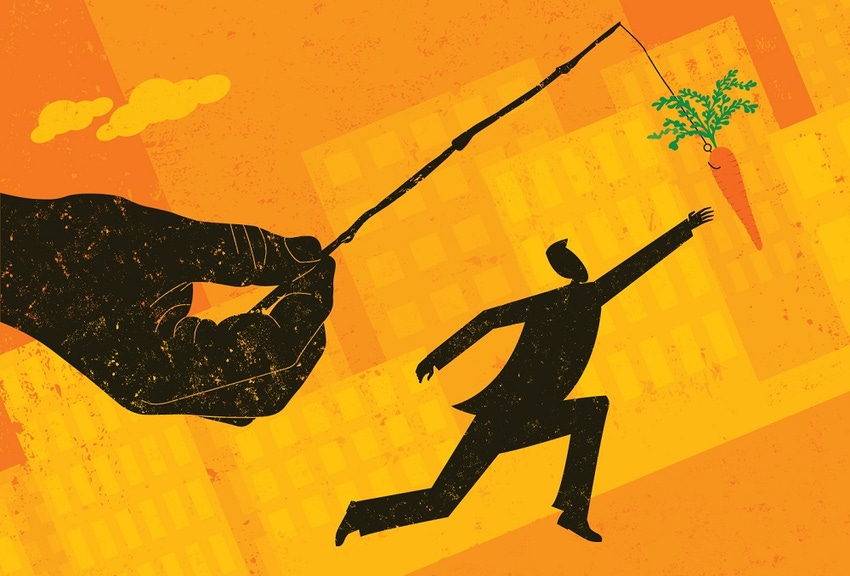Should employers outgrow the ideology of carrots and sticks?
Years of research and demonstrations show money is not the motivator we keep hearing it is.

Historically, we've been told financial rewards are the great motivator of performance, and that in some cases a financial punishment wreaks the biggest rewards in behavioral change. But this may not be so.
Author Daniel Pink says a growing amount of practical and scientific evidence shows this is mostly untrue.
Pink refers to a decades-old experiment where two groups of people were given a box of tacks, some matches and a candle, then told their job was to mount the candle on the wall above a table in such a way the wax does not drip on the table. One group was told they were being timed to establish a baseline for how long it takes people to solve the problem. The other group was offered a financial reward to be in the earliest 25% to solve the problem.
The practical answer was to use the box to hold the candle and the tacks to attach the box to the wall. This required some "out-of-the-box" thinking, to turn a phrase on the higher cognitive skills in this type of task. Most people took time to see the box as one of their tools.
Interestingly, the average of the group competing for the money was more than three minutes slower than the group just doing the test for the sake of the experiment. Pink suggests this drive for the reward actually narrows thinking and hurts creativity and inventiveness.
Since that time, more research has shown this tendency for financial rewards to hurt performance on tasks that require unconventional thinking, regardless of financial state or cultural differences.
Instead, Pink says the social sciences studying human motivation are moving us toward "an approach built around intrinsic motivation, and around the desire to do things because we like them, because they matter to us, because they're interesting to us, and because they are part of something important."
He defines this attitude toward worker motivation as a three building blocks:
Autonomy - the urge to direct one's own life and work.
Mastery - the desire to become a master at something that matters.
Purpose - the yearning to do what we do in the service of something larger than ourselves.
Along similar lines, Simon Sinek, a British/American author, motivational speaker and marketing consultant, wrote a book called Start with Why, in which he says people are motivated first and foremost by the emotional ideas behind companies and products and perhaps much more.
Sinek adds that this why-based behavior, which is at the core of the human experience and happens in the limbic brain, will always win over the questions of how and what and will drive behavior much more effectively. This matches Pink's descriptions of employee motivators.
So to get to the point, Pink suggests three new ideas to consider about motivating employees.
1. Traditional thoughts about financial rewards for work only succeed in a narrow band of circumstances, such as where creative thought is not critical.
2. Financial rewards for performance can destroy creativity.
3. The secret to high performance isn't rewards and punishments, but the drive to do things because they matter.
Simon Sinek: Start with Why
Daniel Pink: The Puzzle of Motivation
About the Author(s)
You May Also Like


.png?width=300&auto=webp&quality=80&disable=upscale)
